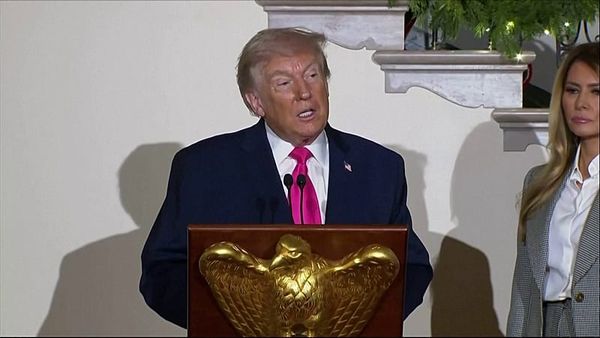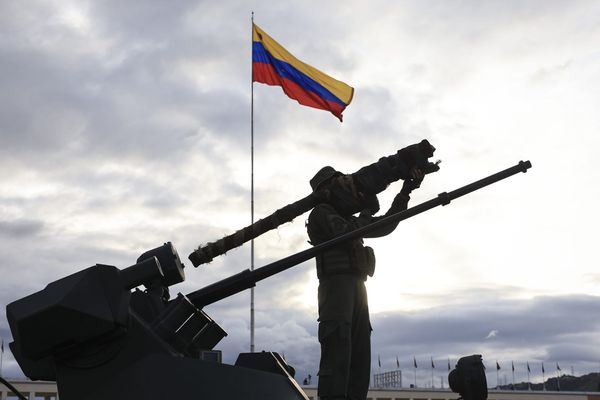A second referendum on independence for Scotland is off the cards for now, following a decision by the UK supreme court that the Scottish government could not call a vote without the cooperation of the UK government.
First Minister Nicola Sturgeon has nevertheless vowed to continue pursuing an independence agenda. In her defiant response to the supreme court ruling, she argued that it simply “blocks one route to Scotland’s voice being heard” rather than definitively drawing a line under the matter.
As she seeks other “routes”, relations with other states are likely to become even more critical. The hope is that support from international allies can be used as leverage in her quest for independence.
While the Scottish government holds various devolved powers – in areas such as health and education, for example – foreign affairs remains the prerogative of the UK government. It is an issue that is “reserved” for the UK parliament, so the governments of Scotland, Wales and Northern Ireland have to take their lead from London.
Yet it is evident that Scotland is engaging in significant international activities. It has established representative missions overseas and runs a high-level networking operation.
Most cities and regions operate an international strategy, principally to exploit economic opportunities. But since the SNP took office, the Scottish government’s activities in the international realm have become more clearly intended to promote Scotland’s claim to sovereign status. This, in itself, is evidence of “proto-diplomacy”, international relations which seek to emulate traditional diplomacy in order to advance the legitimacy of secessionist claims.
The term “proto-diplomacy” refers to an international relations strategy by a sub-state authority which seeks to undermine national diplomatic efforts. Overseas activities are carried out in direct opposition to national positions on international affairs. This grafts a separatist message onto economic, social and cultural links with foreign nations.
Sturgeon has already positioned the international arena as a key battleground, arguing that “at a time of increasing insularity Scotland’s strength remains its internationalism”.
New alliances after Brexit
Brexit has offered the SNP government considerable scope to outline a different approach to the EU than that taken by the UK government in Westminster.
In 2021 the Scottish government committed itself to aligning with the EU’s Acquis Communautaire – the shared laws of the union – wherever possible. It did so by passing what was called the Continuity Act through the Scottish parliament. This set out powers to enable the devolved parliament to maintain pace with European legislative developments even though the wider UK government intended to deviate.
The Scottish National Party has confirmed that it would want Scotland to rejoin the EU once it became an independent nation state. So legislation of this kind would make that easier, since it would not have to undertake large scale legal reforms to meet the requirements of membership.
Effective diplomatic relations with European partners is critical if Scotland were to rejoin the EU after leaving the UK, which explains why Scotland maintains a large presence at the heart of the EU, despite Brexit. While the UK government has been scaling back its activities in Brussels, running a smaller diplomatic representation to the EU, the Scottish government has been working to enhance its own.
Former UK Foreign Office heavy hitters have been appointed to leading roles in Scottish diplomacy, thereby bringing greater seniority to EU activities. Meanwhile, staff numbers in Brussels have been increased and the budget for their activities topped £2 million in 2021.
The clear goal is to provide a strong showcase of Scottish interests in Brussels so that European leaders get an idea of what an independent Scotland would look like – which, in turn, makes realising that goal more feasible.
Another key plank of the SNP’s international strategy is to develop connections between Scotland and neighbouring Nordic and Baltic nations of similar size. This particular alignment illustrates how the Scottish government sees Scotland as an independent actor in the future. In 2022 the Scottish government opened an office in Copenhagen, specifically to promote “policy collaboration” with Nordic countries and increase their economic and cultural visibility in the Nordic region.
Thinking ahead
Collectively, these efforts amount to a blueprint for a future Scottish diplomatic strategy. In 2021, the Scottish government re-opened “Scotland House” in London, a mini-embassy in all but name that seeks to cultivate the kind of relationships that support diplomatic work, such as developing trade and investment links or research and innovation.
Crucially, a representative base in London also helps to facilitate more intense bilateral relationships with other governments, giving the Scots a permanent foothold on the diplomatic circuit.
And these relationships are already being used as a powerful marker of intent. On the day of the supreme court’s ruling, Angus Robertson, Scotland’s external affairs secretary, was in London hosting a joint reception with the Czech Embassy to mark the Czech presidency of the Council of the EU. Robertson made use of the event to talk of opportunities for “future collaboration on policy issues”.
In the soft space of diplomacy, activities of this kind prepare the ground on which an independent nation’s foreign policy can be constructed in the future.
Proto-diplomacy remains marginal to the day-to-day tensions that characterise relations between Edinburgh and London at the moment. However, a strategy of promoting an alternative idea of Scotland in the mindset of allies, both in Europe and globally, offers a potentially fruitful avenue in the absence of the immediate prospect of a fresh referendum.
The history of the state system teaches us that international politics plays a crucial role in secessionist movements. Those seeking the right to self-determination need to adapt their strategies in order to gain external support for their international legitimacy.
Carolyn Rowe receives funding from the Coppieters Foundation.
This article was originally published on The Conversation. Read the original article.







